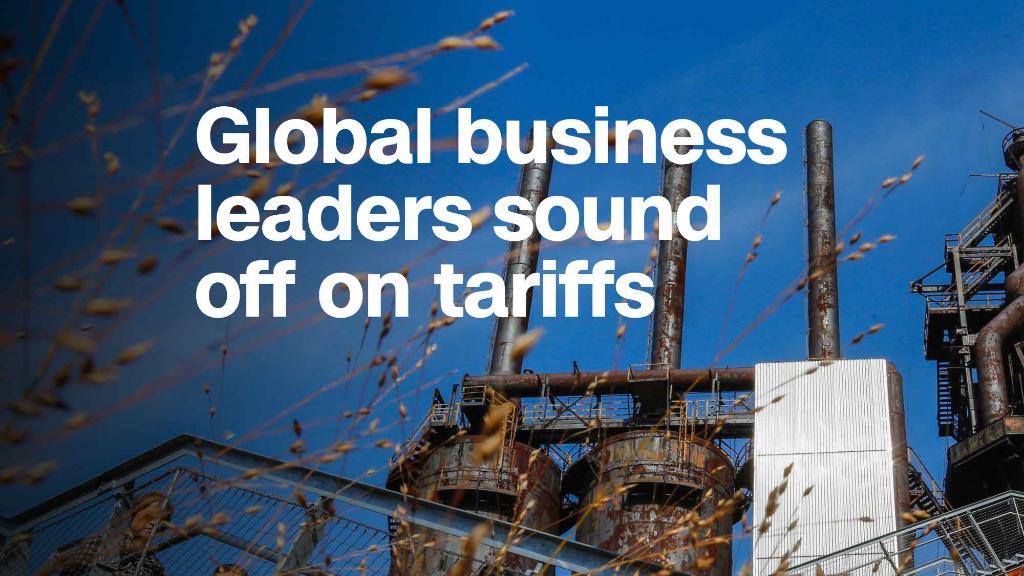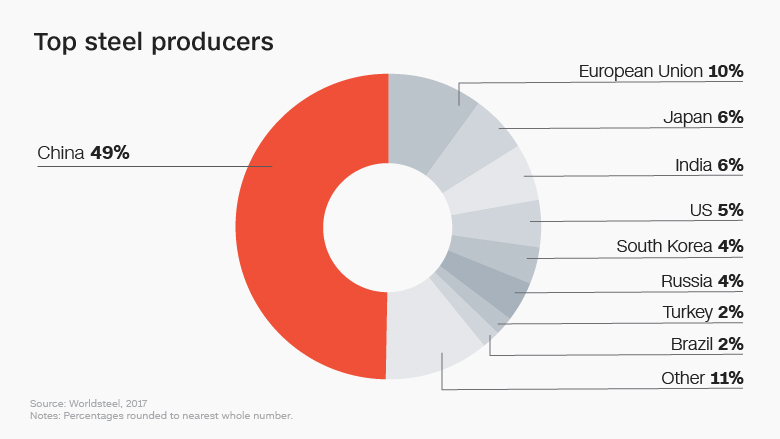
The European Union has published a list of hundreds of American products that it could target if President Donald Trump moves forward with new tariffs on imports of steel and aluminum.
The list of potential targets for retaliation runs to 10 pages and includes US cigarettes, sweetcorn, ovens, sailboats, lipstick and stainless steel sinks.
Europe had previously threatened tariffs on American denim, peanut butter, cranberries, orange juice, bourbon and motorcycles. Those products also appear on the new, expanded list.
US exports worth €6.4 billion ($7.9 billion) are in the firing line. That's equal to the value of steel and aluminum shipped each year from the European Union to the United States.
The list is divided into two categories: US products that face immediate retaliation, and others that would be hit if the World Trade Organization rules the US tariffs illegal or three years pass. The European Union would apply tariffs of up to 25% on the first group.
The stakes in a trade war are high, and EU officials say they would rather have an exemption from the US tariffs. The United States and European Union trade just over €1 trillion ($1.3 trillion) in goods and services each year.
The European Union has invited people who could be affected by Trump's tariffs, and the proposed retaliation, to provide their views about the impact on business.
European Trade Commissioner Cecilia Malmström said last week the EU response to US tariffs on foreign steel and imported aluminum would be "proportionate" and comply with World Trade Organization rules.
She described the US metal tariffs as "deeply unjust" and a threat to European workers.

With tensions running high between the United States and European Union, analysts have warned that the spat could devolve into a tit-for-tat trade war that would damage economic growth and cause prices to rise.
Trump previously threatened to respond to any new EU trade barriers with a tax on vehicles made by European carmakers.
The European Union consistently runs an overall trade surplus with the United States, according to data from the European Commission. The gap is bigger for goods than services.
The 28 nations in the European Union produce 10% of the world's steel. EU trade officials are worried that jobs would be at risk if steel that would have otherwise been sold in the United States is diverted to Europe, pushing down prices.

The United States is the world's top steel importer. The value of steel shipped into the country was just over $29 billion in 2017.
China, which produces roughly half of the world's steel, has in the past been accused of dumping the metal on other markets, pushing down prices, forcing rivals out of business and killing thousands of jobs.
-- CNN's Chris Liakos contributed to this report.


